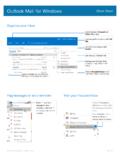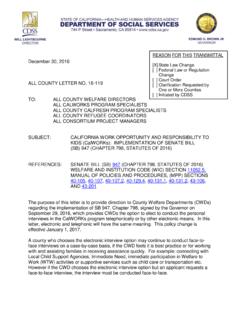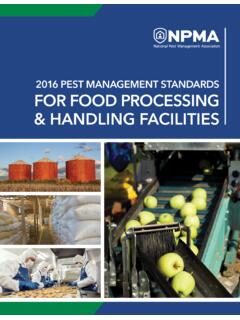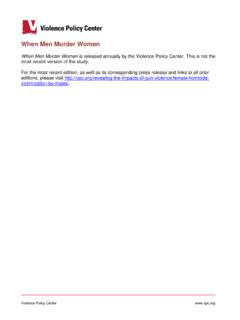Transcription of MEDICATION POLICY FOR DOMICILIARY CARE
1 Neath Port Talbot County Borough Council 22 January 2016 . Review January 2018 MEDICATION POLICY FOR DOMICILIARY CARE Neath Port Talbot County Borough Council 22 January 2016 . Review January 2018 2 READER INFORMATION POLICY : Neath Port Talbot County Council, Social Services Health and Housing Directorate. POLICY developed in collaboration with ABMUHB Document Purpose: Good Practice Guidance Title: MEDICATION POLICY for DOMICILIARY Care Author: NPTCBC Publication Date: 22 January 2016 Review Date: January 2018 For use by: NPT Homecare Services, Social Services Care Management staff, Independent Providers of Homecare, Commissioning Unit.
2 Superseded Documents: MEDICATION POLICY for DOMICILIARY Care Jan 2011 Contact details: Copies of this document are available via the NPTCBC intranet: or via the Commissioning Unit. Neath Port Talbot County Borough Council 22 January 2016 . Review January 2018 3 Contents Section Title Page 1 Introduction 4 2 Purpose and Scope 4 3 General Principles of Good Practice 4 4 Levels of Support 5 5 Risk Management 7 Neath Port Talbot County Borough Council 22 January 2016 . Review January 2018 4 1. INTRODUCTION This document outlines the guiding principles for assisting Service Users with MEDICATION in the DOMICILIARY Care setting.
3 It provides standards to be adopted and adhered to when assisting with MEDICATION which forms part of a Service User s Care and Support Plan. It is recommended that this POLICY is read in conjunction with the NPTCBC s MEDICATION Management Handbook: Procedures & Guidelines for DOMICILIARY Care which outlines the roles, responsibilities and procedures for assisting Service Users with prescribed MEDICATION in the DOMICILIARY Care setting. The Handbook, along with all relevant forms and documents relating to medicines management in DOMICILIARY care, can be found on the links below: Accessible internally by NPTCBC staff Accessible externally by service providers and health care professionals In accordance with current guidance laid down in national standards, legislation and statutory requirements, this document must be readily available to all staff and is to be complied with at all times.
4 It is the intention of Neath Port Talbot County Borough Council (NPTCBC) Social Services, when purchasing services from external Service Providers to share this POLICY with them. It will be a requirement that this POLICY be adopted thereby setting a standardised approach to medicines management within DOMICILIARY Care in Neath Port Talbot. Please note: References in the document to Care Workers mean paid employees supporting a Service User in their own home those employed by social services, the independent sector or Social Services contracted external Service Providers. 2. PURPOSE AND SCOPE Purpose The overall aim of this POLICY is to promote independence through encouraging Service Users to manage their own medicines as far as they are able, and to administer them in accordance with the advice of their own doctor where this is not possible.
5 It defines who can provide assistance with medicines, what assistance they can provide and in what circumstances. As a result it aims to provide a safe framework for care staff to work within when assisting Service Users with MEDICATION . It also outlines some of the documentation which will be used and records which will be kept. However, it is acknowledged that it is not possible to anticipate every eventuality and that in unusual circumstances the specific needs of a Service User needing assistance with medicines may fall outside of these guidelines. In these cases advice will be sought from appropriate Health Care Professionals.
6 Scope This POLICY is intended for use across NPTCBC DOMICILIARY Care for Older Persons and Physically Disabled People s services and includes Care Management, Service Provider and Commissioning Staff. 3 GENERAL PRINCIPLES OF GOOD PRACTICE The service will be delivered in a way that enables self-determination and independence and which respects the dignity, privacy, cultural and religious beliefs of the Service User. Neath Port Talbot County Borough Council 22 January 2016 . Review January 2018 5 Assistance with MEDICATION will only be provided when there is no other means of the Service User managing their own MEDICATION , either through self-administering or support from family and friends.
7 These options must be explored in the first instance. Where it has been established that a Service User requires support with medicines management a risk assessment will be carried out by the Community Wellbeing Officer / Social Worker/Service Provider who will identify the level of support required. Care Workers will only provide help with taking MEDICATION , or administer MEDICATION , with the informed consent of the Service User or their relative or representative who may give consent on the Service Users behalf. Consent will be recorded on a MEDICATION Consent Form (see links on ). If a Service User cannot give consent because of health reasons dementia, then the current recommendations for treating adults with incapacity must be followed.
8 All employees involved in administering MEDICATION must have received relevant training and have been formally assessed as competent by their line manager/trained trainer. Ongoing competence in dealing with MEDICATION must be assessed and recorded via annual monitoring or sooner if required. A record of the printed names, signatures and initials of all Care Workers must be kept by Service Providers for auditing and monitoring purposes. Care Workers will only provide help with medicines management when: it is requested by the Community Wellbeing Officer / Social Worker on the Care and Support Plan (or by the Service Provider if a change of circumstances dictates, for example where an urgent MAR referral is needed to maintain a Service User s safety)
9 It is documented on the Service Delivery Plan which must be accessible in the Service User s home they have undertaken accredited training and have been competency assessed by the Service Provider it is within the parameters and circumstances set out in this POLICY assistance with MEDICATION is part of a package of care Care Workers MAY administer or assist people with: taking oral medicines inserting drops/sprays to ear, nose or eye administering inhaled MEDICATION apply a medicated cream/ointment/patch to skin that is unbroken Care Workers MUST NOT administer or assist people with: injections peg tubes vaginal preparations, such as pessaries rectal preparations, such as suppositories 4.
10 LEVELS OF MEDICATION SUPPORT Assessing Levels of Support Many Service Users may have the potential to independently manage their medications, in part or in full, and all efforts must be made to enable this process to ensure their safety, dignity and autonomy are preserved at all times. Where such potential is identified, a referral to the Medicines Management Team for DOMICILIARY Care (MMTDC) should be considered. There are 3 levels of support (A, B & C), which are outlined below and should be considered as a continuum, accepting that individuals may move up and down the levels depending on their health status and/or functional ability at the time.











